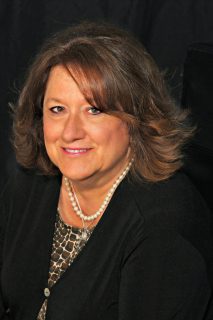The COVID-19 pandemic is presenting emotional and mental challenges, in addition to physical health challenges. Several Catholic psychological professionals are providing insights, resources and positive ways to cope.
Psychologists working with seminaries throughout the country gathered virtually for a teleconference when the pandemic first swept the United States. They shared ways to help seminarians emotionally and spiritually cope with the COVID-19 outbreak.
[hotblock]
The fruits from this teleconference aren’t just for seminarians. Several participants shared their insights with CatholicPhilly.com.
“I think it is safe to say that we are all trying, each in our own unique way, to handle the stresses of life under the shadow of the COVID-19 pandemic,” wrote Father Keith Chylinski, director of psychological services at St. Charles Borromeo Seminary, Wynnewood, in a commentary for CatholicPhilly.com.

Father Keith Chylinski is the director of counseling services and a faculty member at St. Charles Borromeo Seminary, Wynnewood. (Courtesy of St. Charles Borromeo Seminary)
Father Chylinski participated in the teleconference with psychiatrist Dr. Cynthia Hunt from St. Patrick’s Seminary and University in the Archdiocese of San Francisco, and Dr. Christina Lynch from St. John Vianney Theological Seminary in the Archdiocese of Denver.
“(Social) isolation and quarantine can result in a disconnect in relationships which are crucial to human survival,” said Lynch, “In addition, if there are job loss, financial hardship and grief over the death of loved ones, the effects on mental health and well-being can be substantial and seem overwhelming to resolve.”
Anxiety may also come from fear of infection for oneself or loved ones, said Hunt, as well as in actually contracting the virus. Struggles to adhere to stay-at-home orders or suffering from loneliness also contribute to anxiety.
Fear, anger and sadness are normal emotions most people are experiencing, explained Father Chylinski.
There are ways to cope in a healthy way with these challenges, and even thrive amidst them. The secret lies in connecting with others while keeping appropriate physical distance.

Christina Lynch, Psy.D, is a professor and director of psychological services at St. John Vianney Theological Seminary in Denver, Colorado.
“If you find it difficult to manage these feelings, and/or if they are becoming more of a distraction in your own personal life, I encourage you to be honest about it, and seek appropriate help. Please don’t carry these burdens by yourself!” said Father Chylinski.
To get help for oneself or a loved one, Lynch said to begin by reaching out to a trusted friend, family member or priest.
“It is crucial to stay connected to family and friends,” said Lynch. “We are made for community; made for love.”
Father Chylinski suggests doing this via phone or video chat as opposed to solely using email or texts, because “speaking to someone can help reduce feelings of loneliness,” he said.
Seeking help from a professional therapist may be prudent. Lynch recommends such websites as CatholicTherapists.com or the CatholicPsych Institute to find local Catholic therapists and other resources.
[tower]
Lynch also referenced a recent article from the American Psychological Association that lists identifiable warning signs of anxiety, panic attacks, depression and suicide.
Those who already struggle with depression or anxiety are at a higher risk for symptom relapse during this time. Suicidal thinking and suicide attempts can increase due to high levels of stress, said Hunt.
The National Suicide Prevention Lifeline offers 24/7 support, with options in Spanish and for those who are deaf and hard of hearing. Additional crisis hotlines and resources can be found here, including resources for substance abuse.
Those already struggling with substance abuse are more vulnerable to stress during this time, as they may feel temptation to use and have a harder time accessing 12-step recovery programs, noted Hunt.
She participated in a White House conference call on coronavirus-related mental health issues in early April, and said special attention was paid to the opioid crisis.
The Substance Abuse and Mental Health Services Administration offers two free resources. The National Helpline provides treatment referrals and information services.
The Disaster Distress Helpline offers immediate crisis counseling for those experiencing emotional distress related to natural or human-caused disaster, including the coronavirus pandemic. Both services are free, confidential, and available 24/7, 365 days a year.

Psychiatrist Cynthia Hunt, MD, is an adjunct faculty member at St. Patrick’s Seminary and University in the Archdiocese of San Francisco.
During these challenges, people can still operate from a place of joy and hope. Hunt observed that some families and individuals seem to be “thriving.”
These individuals are “taking advantage of this time to grow spiritually and in relationship with one another,” and are expanding recreational and vocational time to help others and think about creative activities.
Some practical tips can help people day to day. Lynch highly encourages a daily routine, starting with prayer and writing down five blessings for which you are grateful, and also finding ways to serve others.
“The more (you) make an act of kindness and help someone else, even in distance … (the) happier you will feel about yourself and forget your own concerns.”
Other suggestions for healthy coping include physical exercise, going outside, playing games as a family and praying.
As she looks toward the future to when social restrictions are lifted, Lynch encourages people to be flexible.
“Change is difficult but Americans are resilient,” said Lynch, “and with faith we can be very resilient.”
Hunt summed up her view with a Scripture passage from Romans 8:28: “We know that all things work for good for those who love God, who are called according to his purpose.”
PREVIOUS: On Mother’s Day, ministry reminds infertile women they’re not alone
NEXT: Even with payouts for abuse victims, archdiocese’s finances improve



Share this story